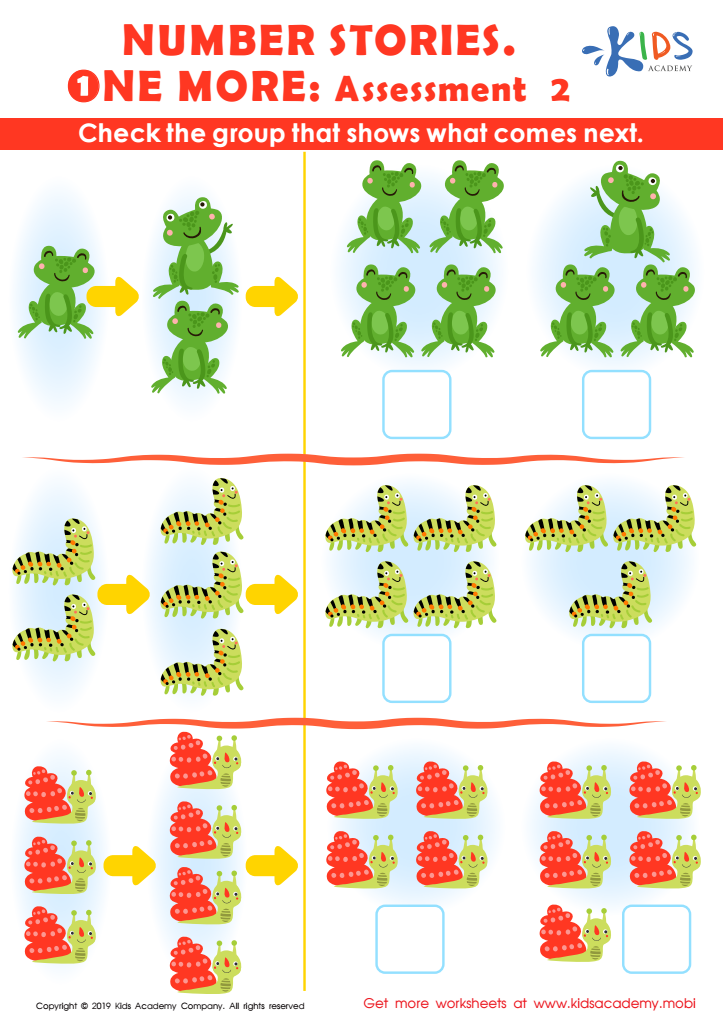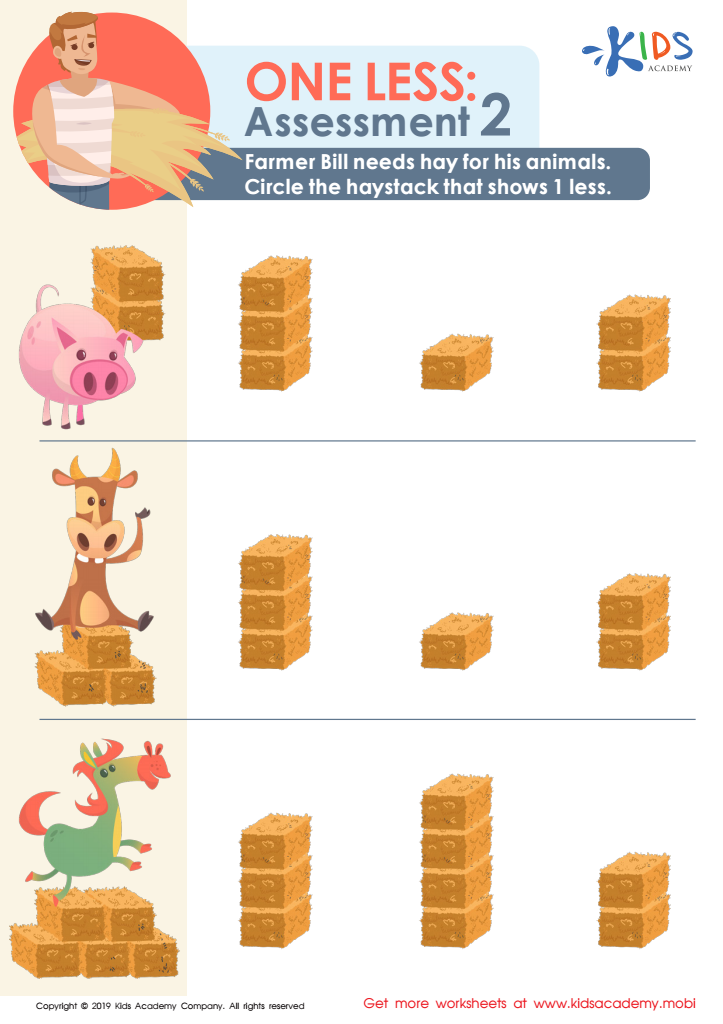Counting Worksheets Activities With Answers
2 filtered results
-
From - To
Answer Keys for Counting Worksheets Activities


Number Stories One More – Assessment 2 Worksheet


One Less: Assessment 2 Worksheet
Counting worksheets activities with answers are an invaluable resource for learners of all ages, particularly those in the early stages of their mathematical journey. These carefully designed activities serve multiple functions that extend far beyond the simple act of counting numbers. The usefulness of such worksheets is manifold, and here's why.
Firstly, counting worksheets activities with answers provide a structured way for learners to practice and reinforce their counting skills. The inclusion of answers allows students to receive immediate feedback on their efforts, facilitating a self-directed learning experience. This immediate validation helps in building confidence and encourages students to engage more deeply with the material.
Moreover, these activities are designed to cater to a wide range of learning styles. Whether a child learns best through visual representation, hands-on practice, or repetition, counting worksheets can be adapted to meet these diverse needs. This versatility makes them a powerful tool in the educator's arsenal, enabling personalized learning paths for each student.
Additionally, counting worksheets activities with answers lay the foundation for more complex mathematical concepts. Mastery in counting is the first step towards understanding addition, subtraction, and eventually, multiplication and division. By reinforcing these basic skills early on, students are better prepared for the challenges of more advanced mathematics.
Furthermore, these worksheets can introduce children to the concept of patterns and sequences, enhancing their problem-solving and analytical skills. Recognizing patterns and understanding sequence logic is crucial in various aspects of mathematics and critical thinking.
Lastly, the structured nature of counting worksheets activities with answers allows for easy assessment of a student's progress. Teachers and parents can quickly identify areas of strength and those needing improvement, enabling targeted intervention to support the learner's development.
In summary, counting worksheets activities with answers are not just about learning to count. They are a multifaceted educational tool that fosters confidence, supports diverse learning styles, prepares students for future mathematical concepts, enhances problem-solving skills, and facilitates easy assessment and feedback. This makes them an essential component of foundational mathematics education.
 Assign to the classroom
Assign to the classroom












